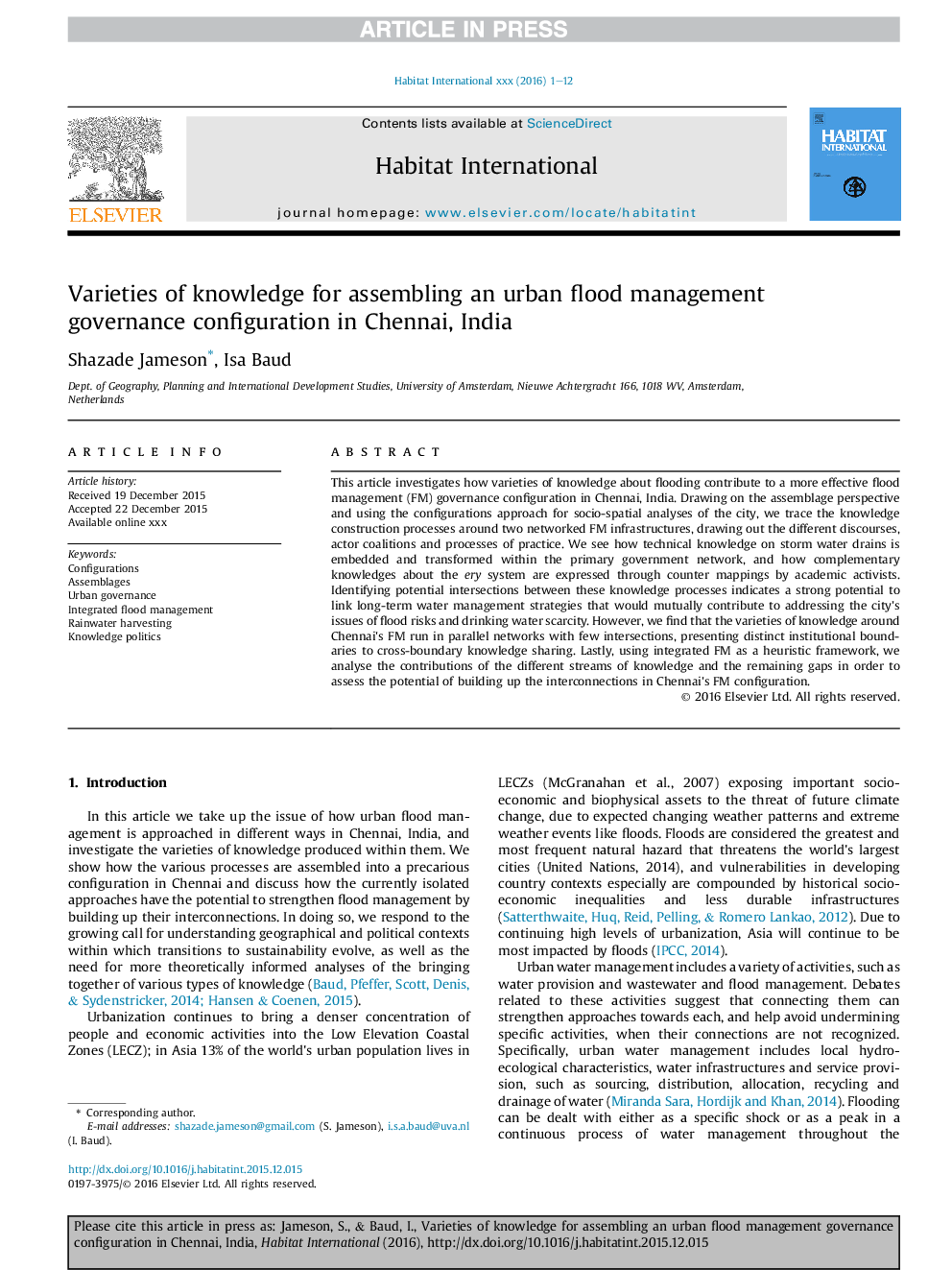| Article ID | Journal | Published Year | Pages | File Type |
|---|---|---|---|---|
| 10502330 | Habitat International | 2016 | 12 Pages |
Abstract
This article investigates how varieties of knowledge about flooding contribute to a more effective flood management (FM) governance configuration in Chennai, India. Drawing on the assemblage perspective and using the configurations approach for socio-spatial analyses of the city, we trace the knowledge construction processes around two networked FM infrastructures, drawing out the different discourses, actor coalitions and processes of practice. We see how technical knowledge on storm water drains is embedded and transformed within the primary government network, and how complementary knowledges about the ery system are expressed through counter mappings by academic activists. Identifying potential intersections between these knowledge processes indicates a strong potential to link long-term water management strategies that would mutually contribute to addressing the city's issues of flood risks and drinking water scarcity. However, we find that the varieties of knowledge around Chennai's FM run in parallel networks with few intersections, presenting distinct institutional boundaries to cross-boundary knowledge sharing. Lastly, using integrated FM as a heuristic framework, we analyse the contributions of the different streams of knowledge and the remaining gaps in order to assess the potential of building up the interconnections in Chennai's FM configuration.
Related Topics
Social Sciences and Humanities
Social Sciences
Development
Authors
Shazade Jameson, Isa Baud,
